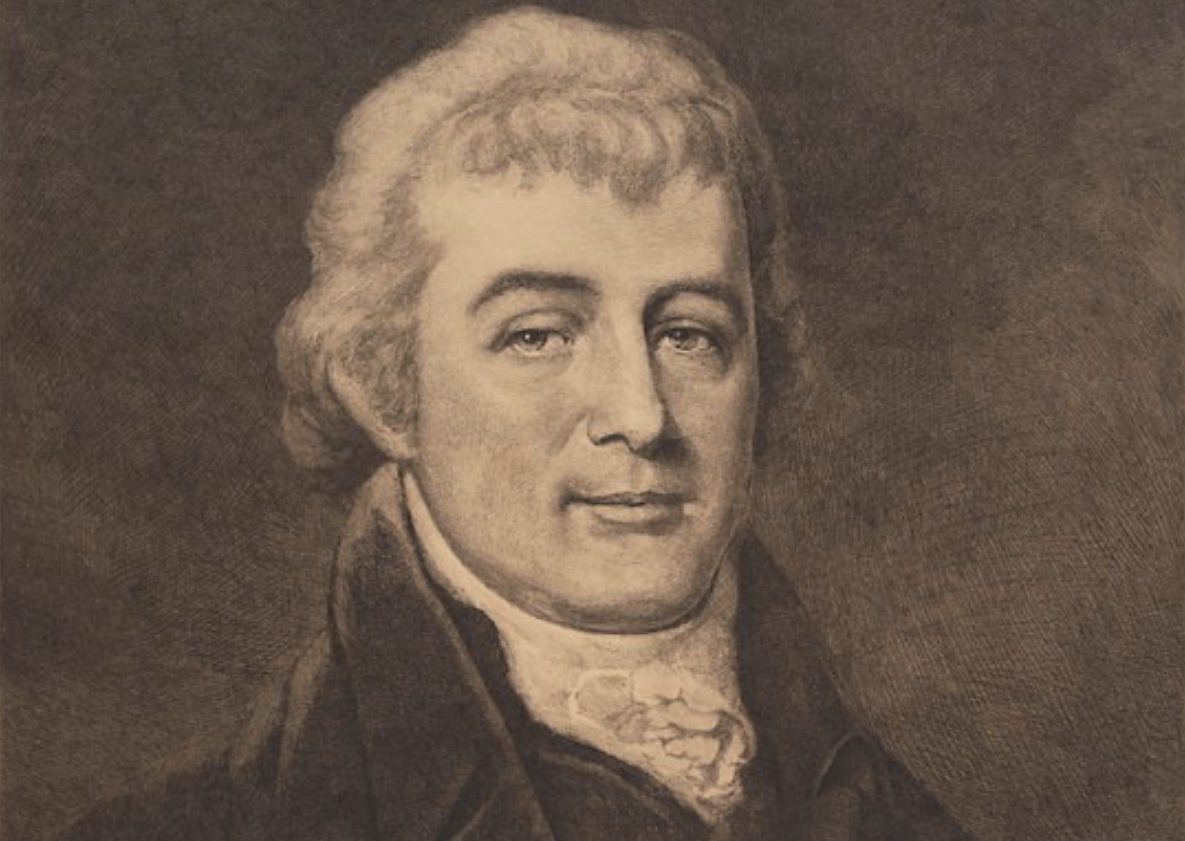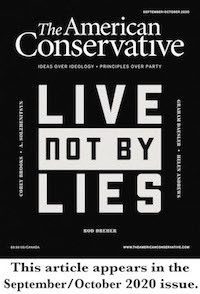Luther Martin Gets His Close-Up

I do my best Shelby Foote impression—it’d have been better if I’d had Foote’s raconteur drawl, Siege of Vicksburg beard, or fortifying supply of whiskey—in Confounding Father, a playfully informative and patriotically contrarian take on the Founders and the Constitution by documentarian Richard Hall. (Viewers who tire of my flat-a Upstate New York accent also get plentiful heapings of Gordon Wood, Pauline Maier, Woody Holton, Murray Dry, Gloria Browne-Marshall, and Paul Finkelman.)
Educational films inflicted upon students tend to be tendentious agitprop or stultifying eat-your-vegetables exercises whose purpose, it seems, is to convince red-blooded American boys and girls that history is either a colossal bore or a predictable struggle between evil victimizers and flawless victims who exhibit all the emotional nuance of characters in a Stanley Kramer film.
Not this one. The perplexer of this new documentary’s title is Luther Martin, the bibulous motormouth whose misfortune it was to attract yours truly as a biographer. (ISI Books, blissfully deaf to the absence of popular demand, recently brought out a paperback edition of my Forgotten Founder, Drunken Prophet: The Life of Luther Martin.)
Martin was the most voluble, if not valuable, Anti-Federalist, a dipsomaniacal delegate to the Constitutional Convention whom the greatest historian of the old Republic, Henry Adams, called “rollicking, witty, audacious…drunken, generous, slovenly, grand…the notorious reprobate genius.” Martin also leveled the most serious and sustained critique ever essayed upon the U.S. Constitution, that handiwork of 55 mortals who gathered in Philadelphia in the summer of 1787 “for the sole and express purpose of revising the Articles of Confederation.”
That sole and express purpose was quickly, shall we say, repurposed, and the delegates, over the furious objections of Luther Martin and a corporal’s guard of dissenters, sent the Constitution out to the states for ratification.
Spoiler alert: the Anti-Federalists, who stood for decentralism, local democracy, and antimilitarism, lost.
Luther Martin’s antipode at the Convention, Alexander Hamilton, got his face on the ten-spot and his surname attached to a hit Broadway musical cum Disney dreckfest, though the more cerebral of the Woke have woken to the fact that Hamilton is the most audacious act of theatrical fraud since Inherit the Wind.
Were I not averse to coercion, I would say that Confounding Father’s treatment of the Constitutional Convention, including the role played thereat by Alexander Hamilton, should be required viewing for the nation’s whelphood.
Hamilton was one of three New York delegates to the Convention, though as Catherine Drinker Bowen wrote of him, “He felt no loyalty to New York, did not know the meaning of state pride, was not born to it and looked upon it as stupid provinciality.”
Although James Madison, Virginia delegate and Convention stenographer, mocked Luther Martin for his interminable harangues, Alexander Hamilton delivered the longest single-day speech of the convention, a six-hour chin-depresser on June 18.
Hamilton was remarkably frank about his desideratum: to “extinguish State Governments.” He conceded its political impracticability: “It will not do to propose formal Extinction of State Governments—It would shock Public Opinion too much.” But as Madison recorded, “he saw no other necessity for declining it.”
Then there was Hamilton’s monarchism. “In his private opinion,” wrote Madison, “he had no scruple in declaring … that the British Gov. was the best in the world: and that he doubted much whether any thing short of it would do in America.”
Hamilton proposed a bicameral legislature to consist of a popularly elected Assembly and a Senate whose members, chosen by  electors, would serve for life. His executive also held a lifetime appointment, for only a man so equipped “dares execute his powers.” This elective monarch—Hamilton’s term—would have an absolute veto over all legislation as well as the power to nullify all state laws. Hamilton also wanted state governors to be appointed by the national government.
electors, would serve for life. His executive also held a lifetime appointment, for only a man so equipped “dares execute his powers.” This elective monarch—Hamilton’s term—would have an absolute veto over all legislation as well as the power to nullify all state laws. Hamilton also wanted state governors to be appointed by the national government.
Yet at the New York ratifying convention, where he led the pro-Constitution forces, Hamilton simply lied about his own views, presenting himself as a nationalist who was also a solicitous friend to state governments. (Kissinger aide Helmut Sonnenfeldt once warned Pat Moynihan about his boss: “Henry does not lie because it is in his interest; he lies because it is in his nature.” So, too, Hamilton.)
The Philadelphia convention had been shrouded in secrecy—what happened in Philadelphia stayed in Philadelphia—so there was no way for the Anti-Federalists of Upstate New York to call Hamilton on his mendacity. The New York convention narrowly ratified the Constitution by a vote of 30-27. Empire beckoned.
Luther Martin is buried in an unmarked and paved-over grave in Manhattan, where he spent his final years, guest of Aaron Burr, whom Martin had defended in his treason trial of 1807. Burr, of course, slew Hamilton in their famous duel of 1804. I suppose it would be wrong to lament that he fired the shot 20 years too late.
Bill Kauffman is the author of 11 books, among them Dispatches from the Muckdog Gazette and Ain’t My America.